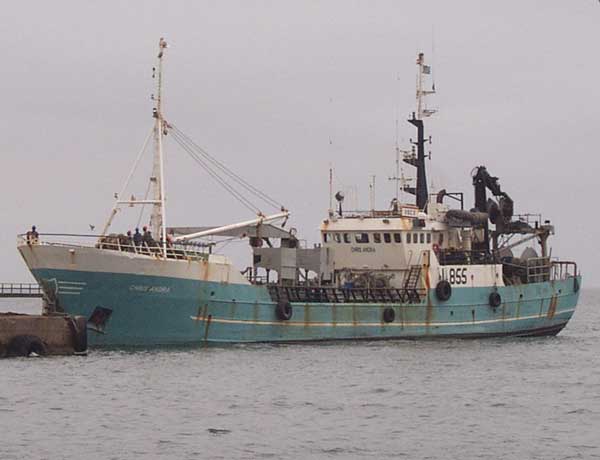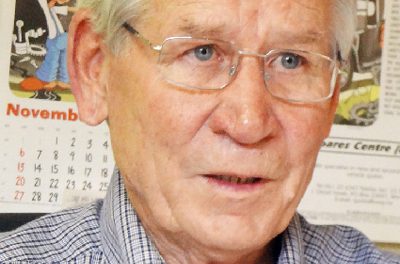
The benefit of Big Data. New research uncovers the elusive identities of the world’s fishing fleet

By Freeman ya Ngulu.
According to researchers from Global Fishing Watch, the Marine Geospatial Ecology Lab at Duke University, and the Stockholm Resilience Centre, they were able to track and analyze 35,000 commercial fishing and support vessels to reveal their shifting identities and enable the reconstruction of historical data using big data processing and a collection of global datasets.
Global Fishing Watch, an international nonprofit organization dedicated to advance the blue economy through increased transparency of human activity at sea, revealed the global hotspots for illegal fishing.
The majority of the world’s industrial fishing is conducted by vessels that change their country of registration, a process known as “reflagging,” and a new study published in Science Advances uses identification data from more than 40 public registries and ten years’ satellite tracking data to pinpoint hotspots of potential illegal fishing and foreign-owned vessel activity.
The study, “Tracking Elusive and Shifting Identities of the Global Fishing Fleet” found that close to 20% of high seas fishing is carried out by vessels that are either internationally unregulated or not publicly authorized, with large concentrations of these ships operating in the Southwest Atlantic Ocean and the western Indian Ocean.
The data used in the study is intended to complement the FAO’s Global Record of Fishing Vessels, Refrigerated Transport Vessels and Supply Vessels. Together with the International Maritime Organization’s ship identification number scheme, these resources can provide fishery authorities with the information to monitor vessel activity, implement flag State responsibilities, and inform responsible fisheries management.
“Until now, we’ve had limited information linking together the identity and activity of specific vessels,” said Jaeyoon Park, senior data scientist at Global Fishing Watch and lead author of the study. “When a vessel’s identity is changed, it makes tracking them all the more difficult, allowing bad actors the opportunity to take advantage of information gaps and avoid oversight. We need to close that loophole.”
Of the 116 States involved in reflagging, the study found that only 20% is responsible for about 80% of reflagging over the past decade, with most reflagging occurring in Asia, Latin America, Africa, and the Pacific Islands. The study found that reflagging takes place in just a few ports—Las Palmas de Gran Canaria, Busan, Zhoushan, and Kaohsiung have the highest activity.
Vessels are often reflagged to States that are unrelated to the ports in which they are changing their registrations. This means that a vessel can change its flag from one country to another without ever having to enter port in either of those countries.
While reflagging and foreign ownership are lawful, when not properly regulated and monitored, they can indicate a risk of illegal, unreported and unregulated (IUU) fishing. IUU fishing accounts for as much as 20% of the global seafood catch with annual losses valued at up to US$23.5 billion.
“Knowing the identities of vessels fishing the high seas is critical for uncovering the connection between the potential IUU fishing behaviour and vessels that repeatedly change their name, flag State or registered owner,” said co-author Gabrielle Carmine of Duke University’s Nicholas School of the Environment. “This analysis could be used to help monitor fisheries more effectively and for accountability in the use and protection of marine biodiversity.”
The study also identified concentrations of fishing activity by foreign-owned vessels in parts of the high seas and certain national waters like the southwest Pacific, the northwest Indian Ocean, Argentina and the Falkland Islands (Malvinas), and West Africa where vessels are typically owned by China, Chinese Taipei, and Spain. The hotspots in this study correspond to the areas in which multiple non-governmental organizations have called for better governance systems.










































